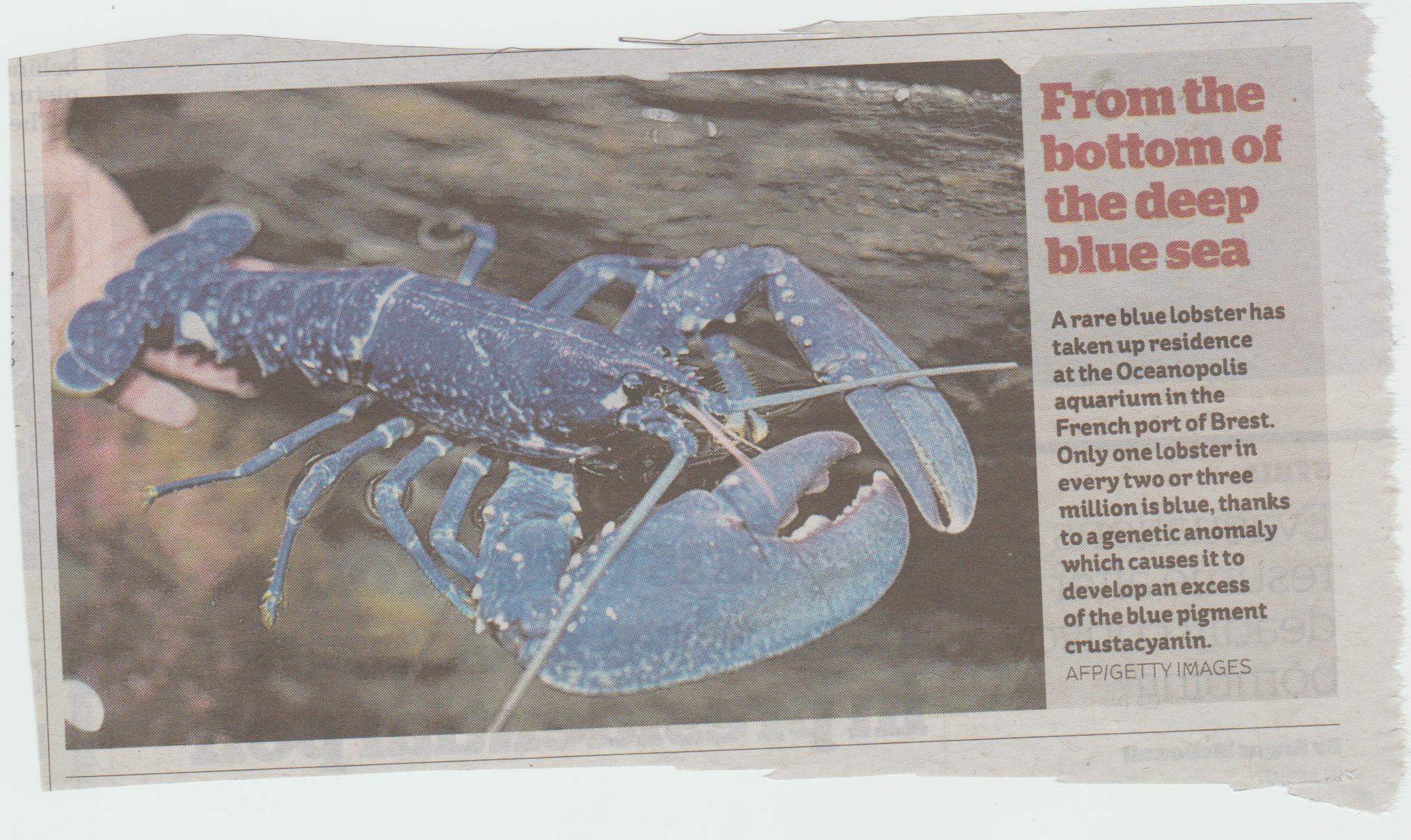
i newspaper, April 20, 2017
The obvious question here is: What colour are most lobsters? (Answer: blue-black or brownish-black.) You should not leave the reader wondering, especially as some probably think lobsters are red.

i newspaper, April 20, 2017
The obvious question here is: What colour are most lobsters? (Answer: blue-black or brownish-black.) You should not leave the reader wondering, especially as some probably think lobsters are red.
Mail Online, April 16, 2017
‘Compare to’ is to liken, as in ‘Shall I compare thee to a summer’s day?’ This should be ‘compare with’, meaning to find the differences.

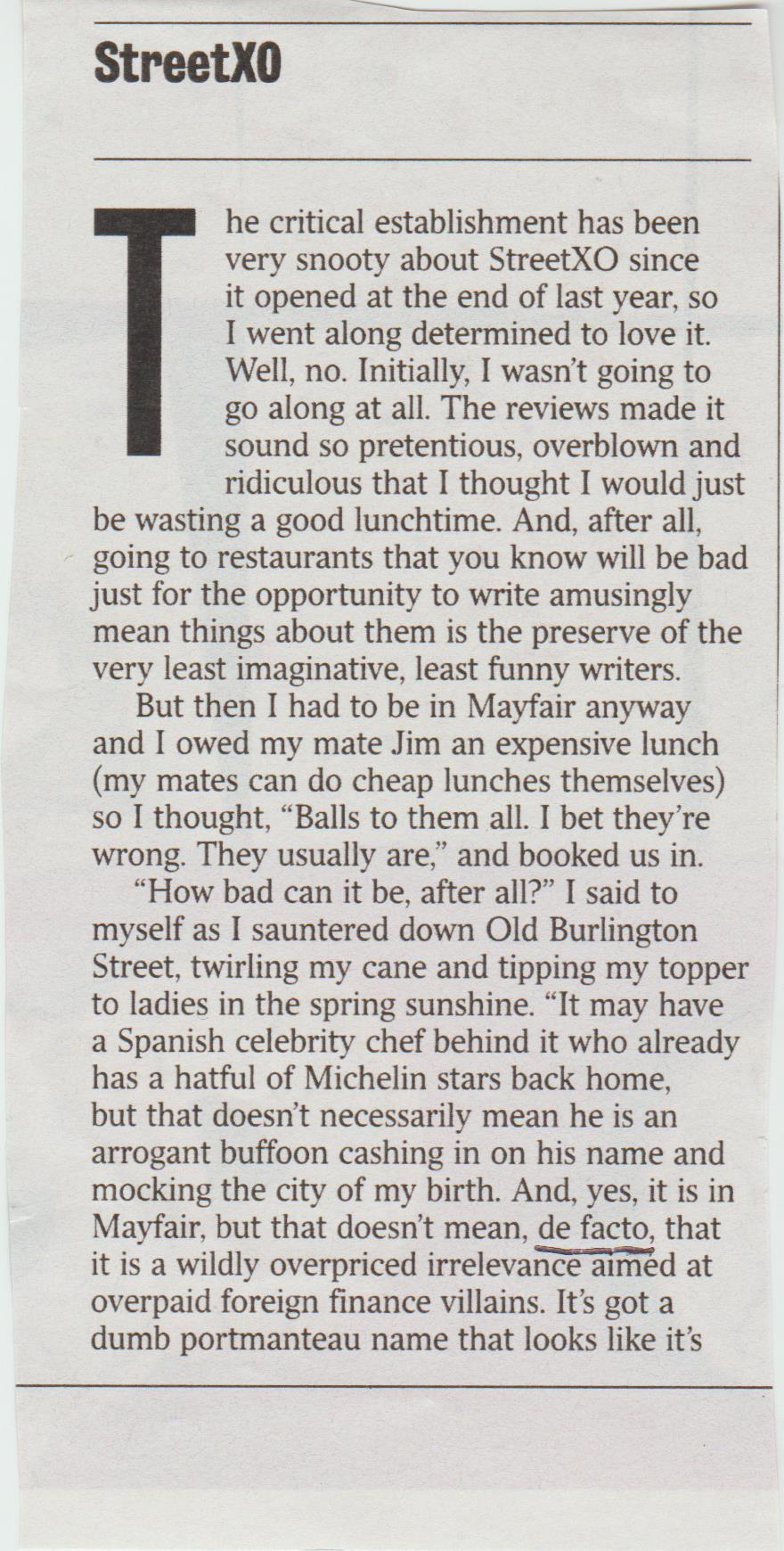 The Times, April 15
The Times, April 15
If you are going to try to show off by putting Latin phrases into your copy, it is a good idea to use the right one. ‘De facto’ means in reality as opposed to theory, for example ‘the country is de facto two separate states’. The phrase needed here is ‘ipso facto’, meaning ‘inevitably’ (literally ‘by that very act’). Or you could put ‘inevitably’.
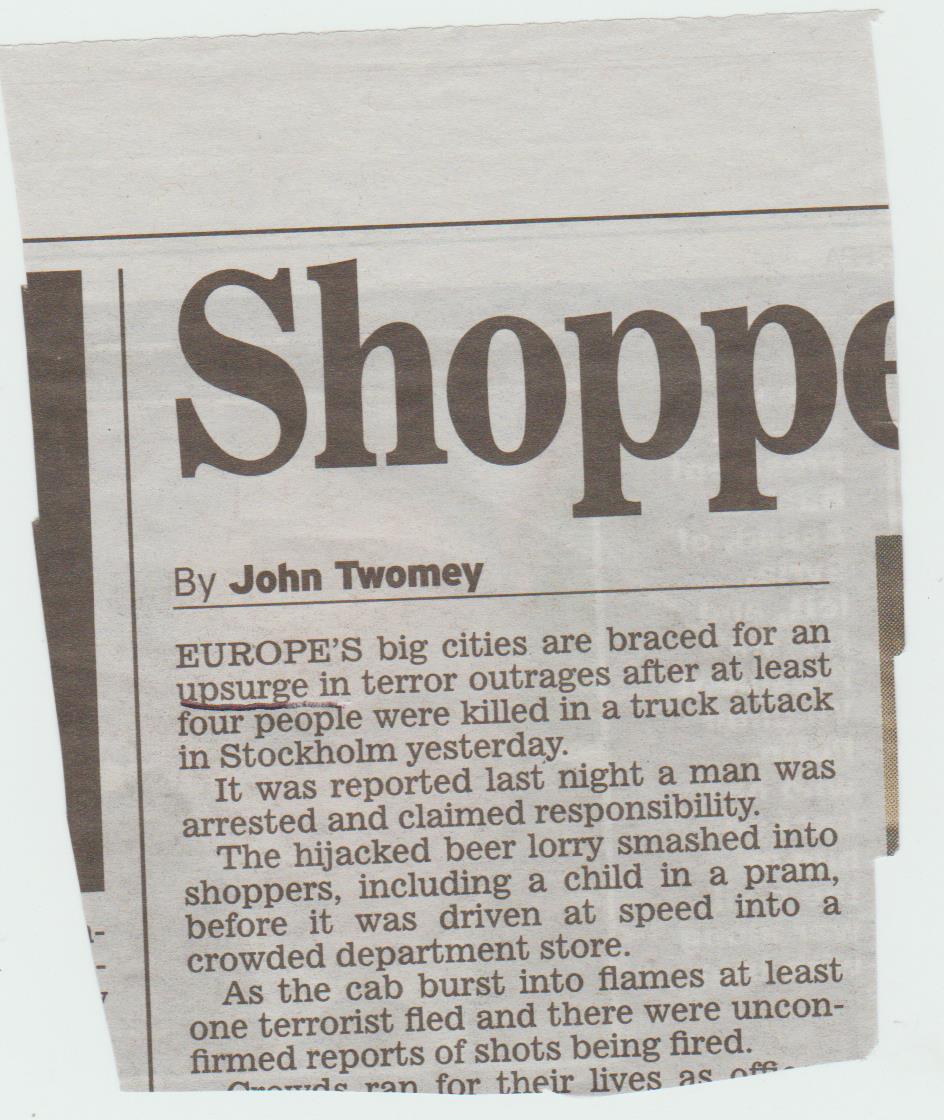 Daily Express, April 8, 2017
Daily Express, April 8, 2017
As with many words and expressions, the ‘up’ is unnecessary. There is no such thing as a ‘downsurge’ from which it needs to be distinguished, so ‘surge’ is quite adequate.
 The Times, April 14, 2017
The Times, April 14, 2017
Lovely picture, but the caption is short on detail. This one is much better:
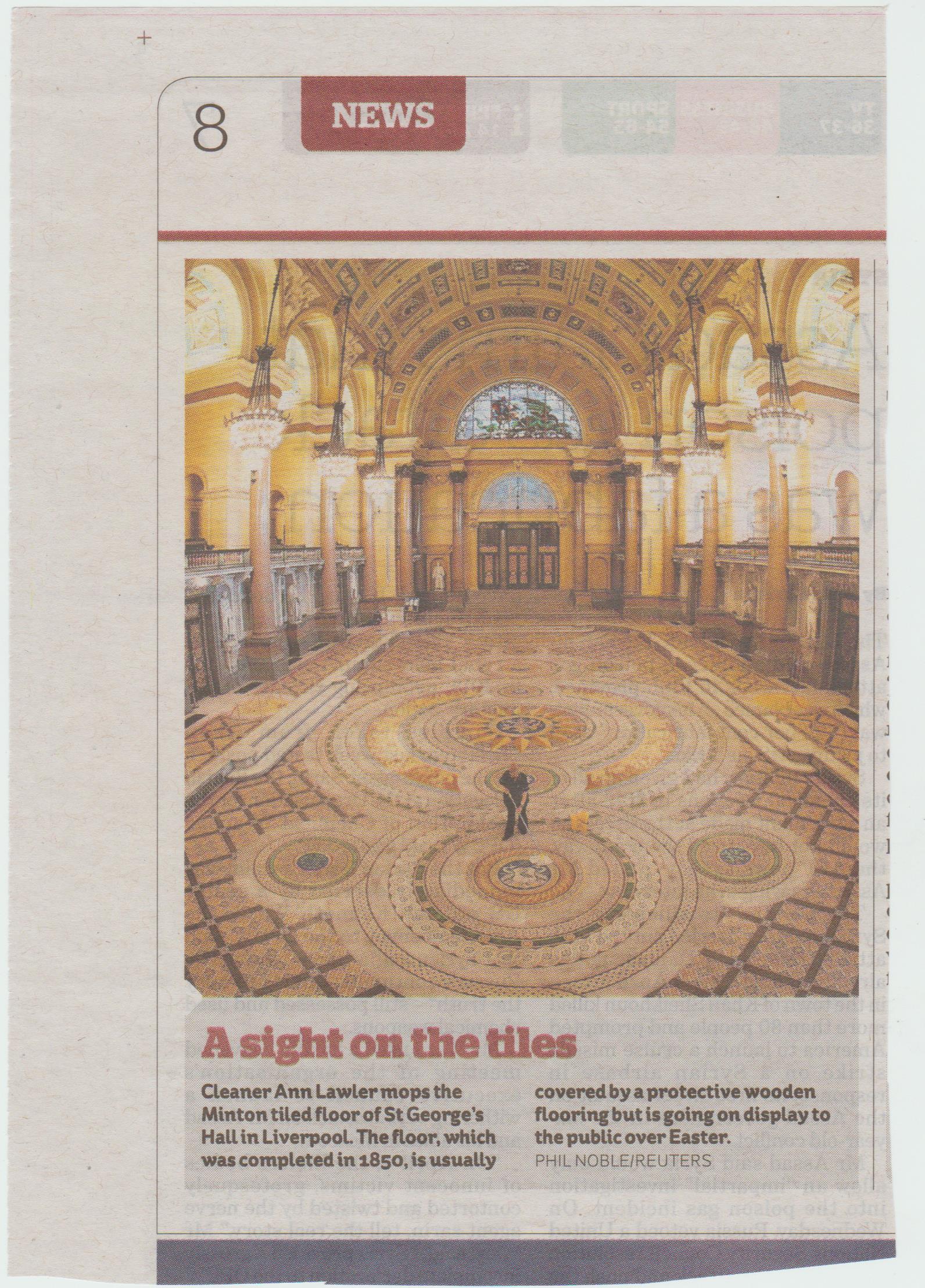 i newspaper, April 14, 2017
i newspaper, April 14, 2017
This includes the interesting facts that the floor dates from 1850 and that it is normally protected by a wooden floor (I don’t know why it says ‘flooring’). The Times caption is limited by being only two lines, but there is no law of the universe which says a Times caption cannot be three lines. The style should not take precedence over the words.
Incidentally the woman in the picture is named Ann Lawton in the Times and Ann Lawler in the i, so one of them is wrong (or possibly both).

i newspaper, April 13, 2017
This is a horrible word that seems to exist only in newspapers. Wouldn’t ‘a series’ be better?
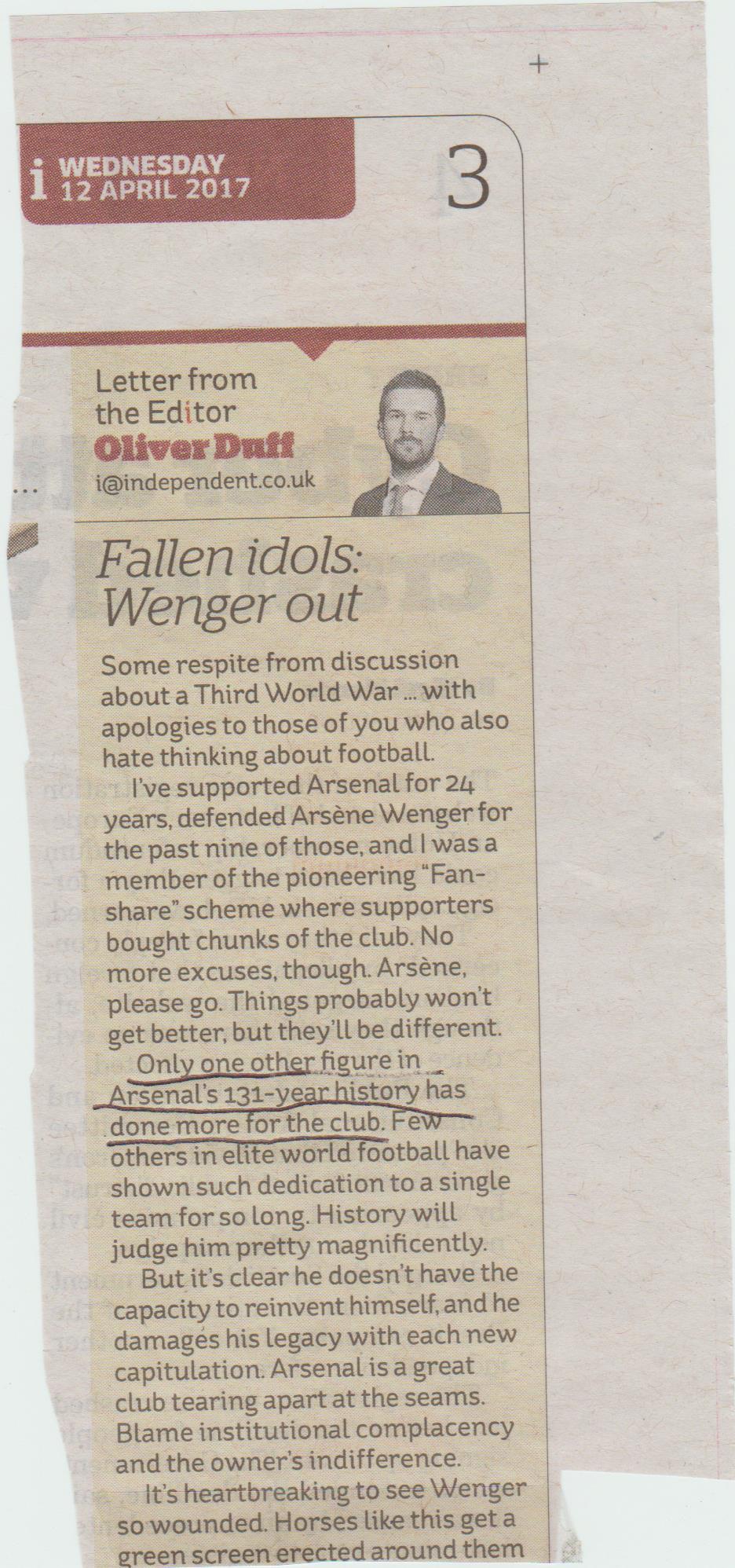
i newspaper, April 12, 2017
So who is this towering individual? I read through the whole piece but he is not named. (I give the rest below.) Turning to the internet version, I find Herbert Chapman is mentioned as a footnote, but even then his achievements are not spelled out (he led the club to its first FA Cup success and two First Division titles between the wars).
This is poor, and from an editor it is very poor. If you mention someone in this way, you must name him, and say why he is great, and not leave the reader wondering. In this very long piece there was plenty of room. The reader should certainly not have to look it up.
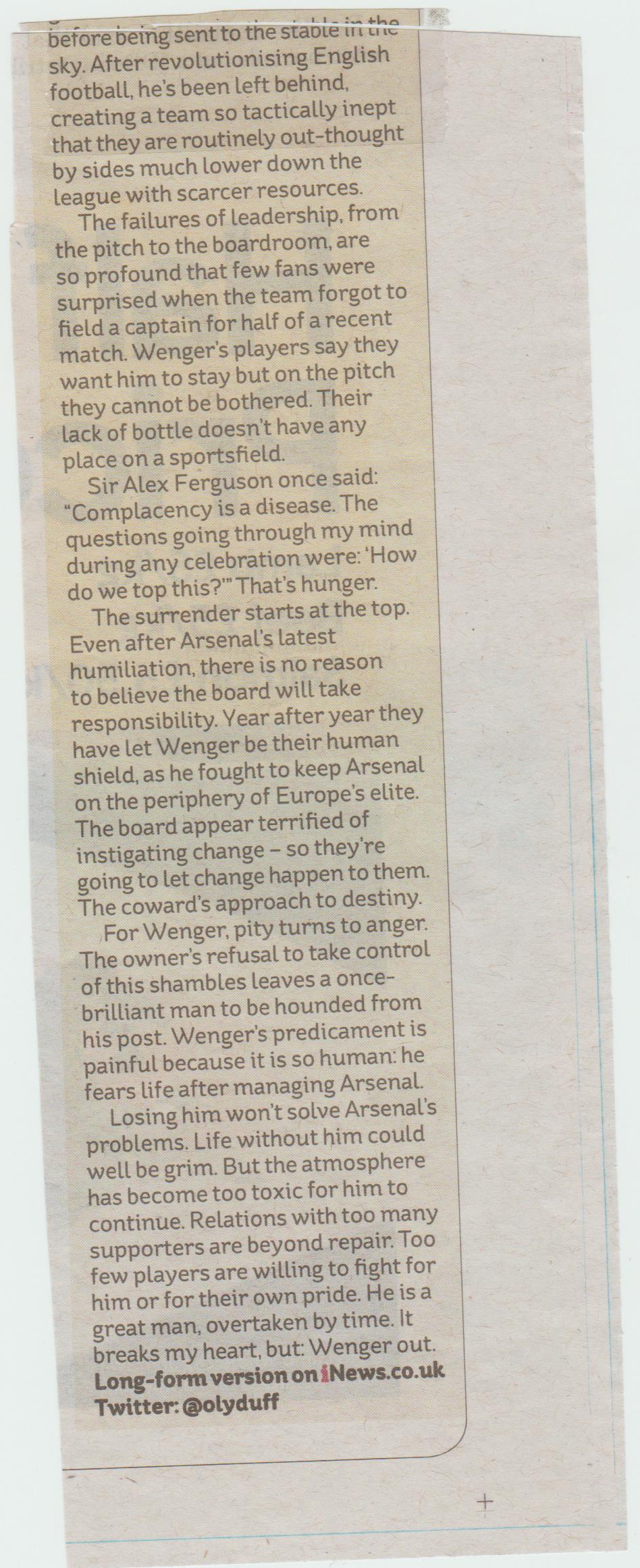
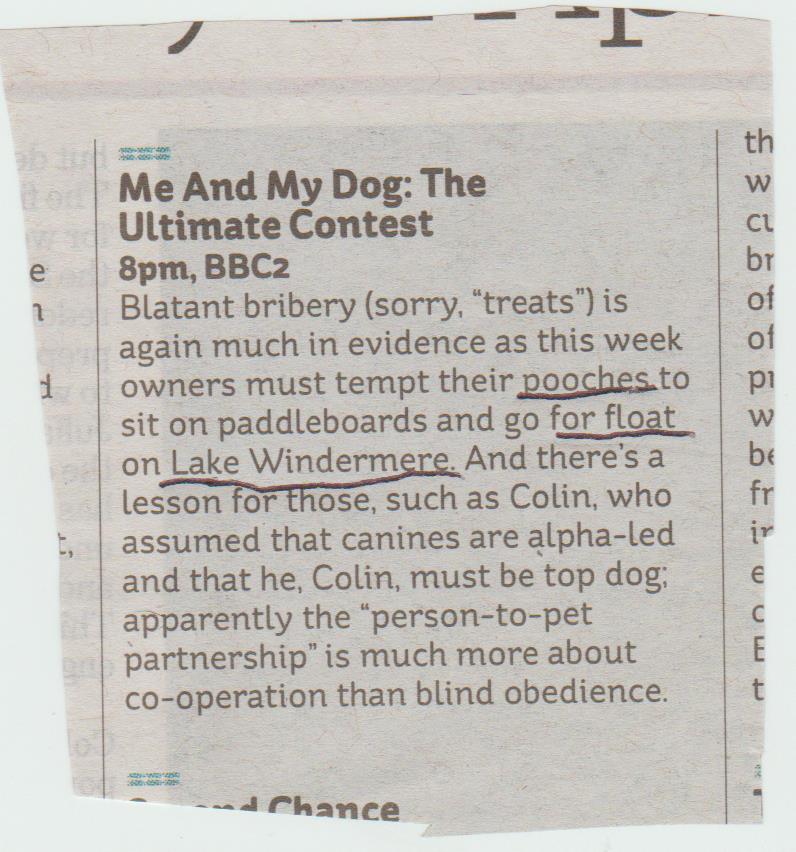
i newspaper, April 12, 2017
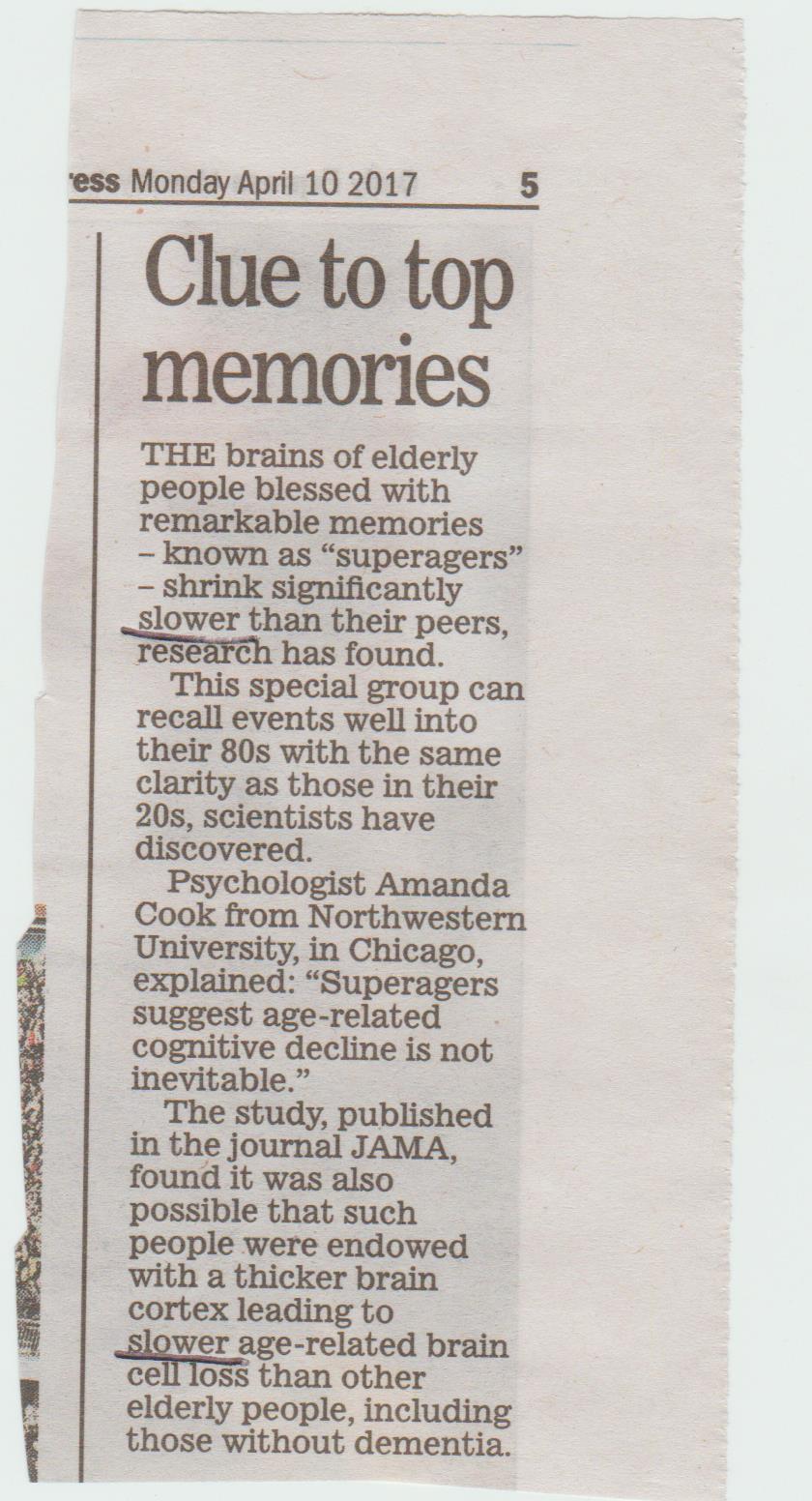
Daily Express, April 10, 2017
Here the word ‘slower’ is used wrongly and correctly in the same story.
Slower is an adjective, for example ‘the race was run in a slower time’. However in the first instance it is wrongly used as an adverb to modify the verb ‘shrink’. The words that are needed here are the adverb and comparative ‘more slowly’. It is used correctly in the second instance, as an adjective to modify the noun phrase ‘brain cell loss’.
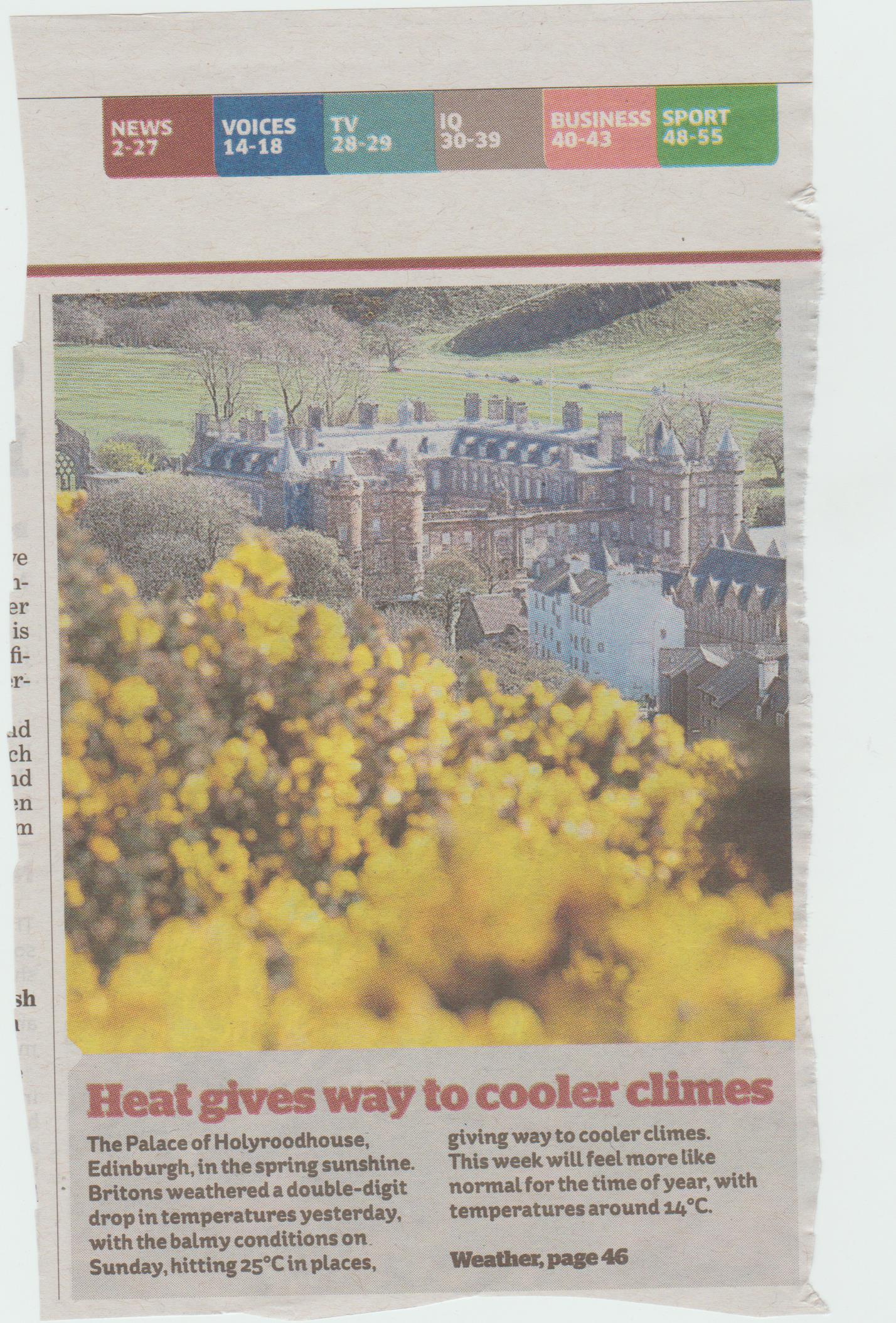
i newspaper, April 11, 2017
A ‘clime’ is a region defined by its climate. It is often used in the plural, for example ‘He departed for the sunnier climes of the Mediterranean’. So it cannot be used as a synonym for weather or temperature.